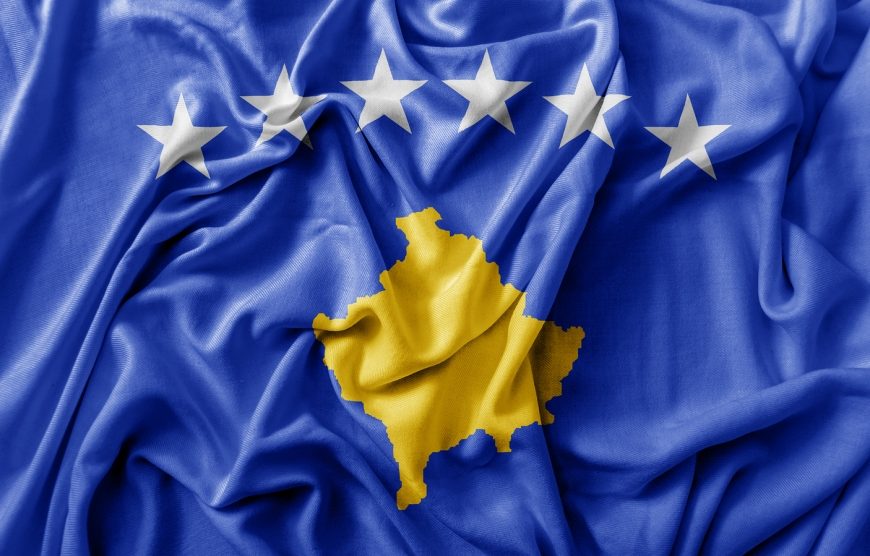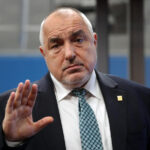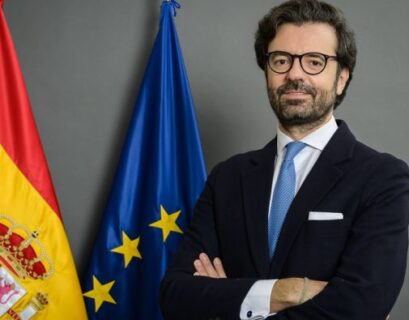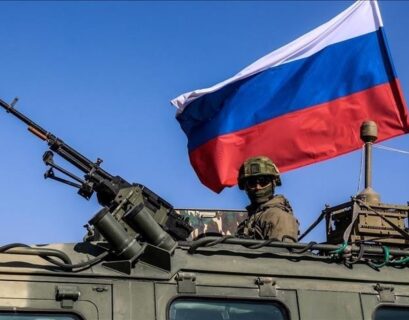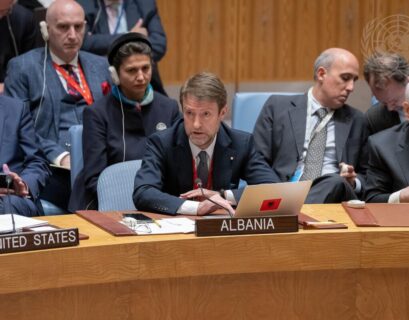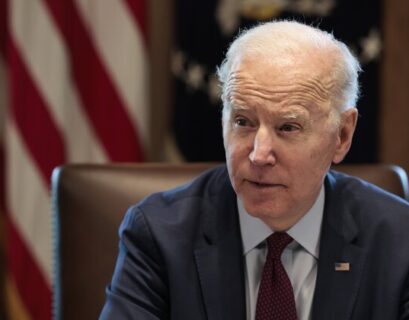Donika Emini
Kosovo is in a period of profound change. The latest developments following the snap elections call attention to the state of our knowledge and expertise about change processes in governmental decision making. Expectations are high as the country is preparing to establish the new government and elect the president to lead the country forward internally and in foreign policy.
Unlike previous electoral processes in Kosovo, the February elections set a record breaking victory for Vetevendosje (VV) and Albin Kurti gaining a total of 49.95 per cent. The landslide win of Vetevendosje has been widely heralded as a victory of a reformist agenda. A victory of democracy, moreover, as the opposition – once again – has managed to come to power through free and fair elections. A triumph of democracy following the citizens decision to bring back Kurti to power after being overthrown by the old ruling elite in March 2020.
Vetevendosje and the Vjosa Osmani List ran and won the elections on a reformist ticket, a platform that included the fight against corruption, the economic recovery, social welfare and social justice. Expectations are sky-high and deeply rooted to the current internal pressing issues. Given the fact that the country is facing multi-frontal internal crisis further amplified by the COVID-19 pandemic, the inward looking approach sounds rather a reasonable strategy to be followed. However, foreign policy cannot be completely decoupled from the internal functioning of the country especially in a world built on bilateral and multilateral cooperation mechanisms – extremely relevant in times of global crisis. Adding to this complexity, Kosovo is in the process of the EU facilitated dialogue with Serbia which has kept on hold the diplomatic recognition process, thus the consolidation of Kosovo in international arena.
By running these elections with the intentions to set the country straight and dismantle state capture through a strict process of reforming domestic structures, the winning party revealed no detailed program in relation to Kosovo’s foreign policy whatsoever. Setting no expectation in foreign policy, paved the way for all sorts of presumptions to be created by many – including here the traditional strategic partners of Kosovo such as the U.S. and the EU.
As Kosovo prepares for the new institutions to establish, many questions and dilemmas in relations to its foreign policy are looming on the horizon. Can Kosovo redirect its foreign policy?
Foreign policy from a wider lens: Kosovo’s foreign policy, albeit not a priority by the winner of the elections in Kosovo – Albin Kurti, stands at a very critical juncture. For thirteen years, Kosovo has followed a very narrowed foreign policy based on two pillars: firstly, the recognition and membership in multilateral cooperation mechanisms; secondly, the dialogue between Kosovo and Serbia – which gradually and (un)intentionally became the main avenue of Kosovo’s existence regionally and internationally. Both pillars have been under stress in the past two years with diplomatic recognitions on hold and even revoked by some countries after the de-recognition campaign led by Serbia. Whereas, membership in international organizations has been a challenging ambition of Kosovo but formally has been put on hold following the Washington DC agreement signed in September 2020.
This narrowed and rather passive foreign policy approach can be easily adjusted. Instead of trying to create avoidance by hiding behind the priority mapping, Kurti does have the unique opportunity to restructure, re-strategize, and re-energize Kosovo’s foreign policy. Placed on a continuum indicating the magnitude of the foreign policy change, the shift can include minor adjustments – both through the program and goal alternation approach, to fundamental changes in a country’s international strategic orientation – which Kosovo does not need and shall not pursue.
As Hereclitus observed, we cannot step in the same river twice, so also should be a government’s foreign policy constantly changing but usually with minor adjustments or modifications in nuance based on its domestic interests and the international developments. In the past thirteen years, the concept of Kosovo’s foreign policy was problem oriented – mainly dealing with the issue of diplomatic recognition.
The question remains will the new government follow the problem oriented foreign policy which is designed to address one problem, or a goal oriented policy which includes actions to be taken toward foreign entities in order to Kosovo’s goals internationally toward. The latter being a more proactive foreign policy based on Kosovo interests.
Changing perspective is a crucial step in the framework of the minor foreign policy adjustments. Changing perspective means re-strategizing. Thus, developing a foreign policy strategy is imperative to take place immediately when the next government is established. Indeed, for Kosovo, foreign policy primarily represents the effort of the country to navigate and consolidate itself internationally – after more than one decade of its existence in an unrecognized or partially recognized limbo – the status quo. To date, diplomatic recognitions – mostly treated like trophies by Kosovo political elite – have been focused on quantity rather than quality, thus tremendous efforts have been made to pursue new recognitions while the existing ones have rarely been nurtured and developed. Only strong bilateral ties can pave the way for Kosovo to thrive in multi-lateral cooperation platforms. As we are approaching the end of the infamous moratorium – deriving from the Washington Agreement of 2020 – preventing Kosovo from applying for membership in international organizations, the new foreign policy strategy should be more proactive in this regard.
Most importantly, thirteen years after the independence, foreign policy approach should be widened and be seen rather as a political mechanism to protect country’s values, interests, national security, and the economic interests. Taking full ownership and aligning internal and external interests is the key, on contrary to the ‘free fall’ approach used to date by the old ruling elite. This becomes even more relevant in the current world of power and geopolitical shift.
Dialogue with Serbia – prioritizing priorities: The dialogue between Kosovo and Serbia to be precise – albeit one of the main factors behind the overthrow of the Kurti Government in 2020 – has occupied very little space in the Vetevendosje agenda during the campaign. Not a priority! This has been the shortest answer that Kurti has provided to every question in relation to the Dialogue. This approach has opened many questions, fears, and even anxiety in the country and abroad.
Kurti turned the dialogue between Kosovo and Serbia into a centerpiece in his struggle for political power. Kurti and his party did not hesitate to use foreign policy and dialogue with Serbia to differentiate themselves from opponents. Now that the out of power and ousted Kurti succeeded, then the approach towards these processes logically is expected to change. Once again, avoiding this process is not a strategically well-though approach especially following the political will of the new U.S administration and the EU to move this process forward.
Clearly, a government can and should multi-task. The new government in Kosovo has the opportunity to restart the Dialogue and contribute to developing a process that is based on values and principles. Thus, instead of using the prioritization excuse, it is rather important to take time to create the negotiation platform, the negotiations strategy, as well as initiate the process of creating societal cohesion and political consensus in relation to the Dialogue.
Negotiation positions shall not be created under the spell of the political rallies but through a solid internal dialogue and close partnership with the strategic partners. Governments are elected with the aim to lead and set agendas, take responsibility to lead in times of crisis – even if at a very big political cost. Avoidance and rejections might have been the right approach for Kurti when dealing with the unconventional Trump administration – an attitude supported by some EU member states and a part of political elite in the US. However, with the new Biden administration and its political will to cooperate with the EU, Kosovo cannot politically afford to make the mistake of not using this momentum for its own benefit. In a drastically changing world and the trend of the geopolitical shift, Kosovo should politically mature and conclude important process, after all, the citizens have given full support and strongly believe that the Kurti-Osmani combination is the best team to lead Kosovo forward domestically and internationally.
Donika Emini is a PhD candidate in Politics and International Relations at the University of Westminster, London. Emini is a BIEPAG member and leads the CiviKos Platform, a secretariat gathering 250 CSOs in Kosovo. She holds a scholarship of the Global Challenges Research Fund (GCRF), and a master’s degree in Public Policy specializing in Public and Non-Profit Management and International Relations.


